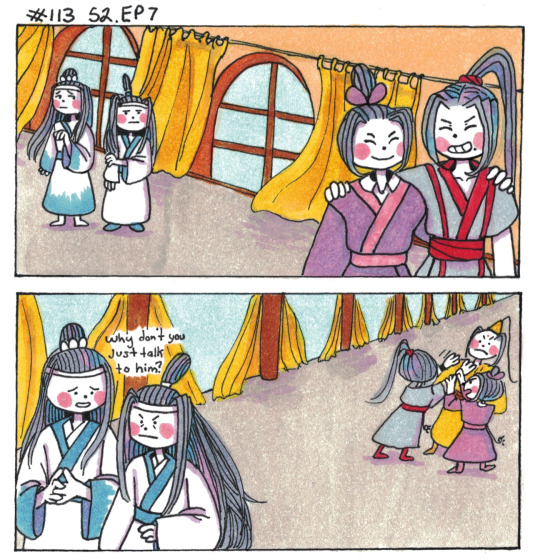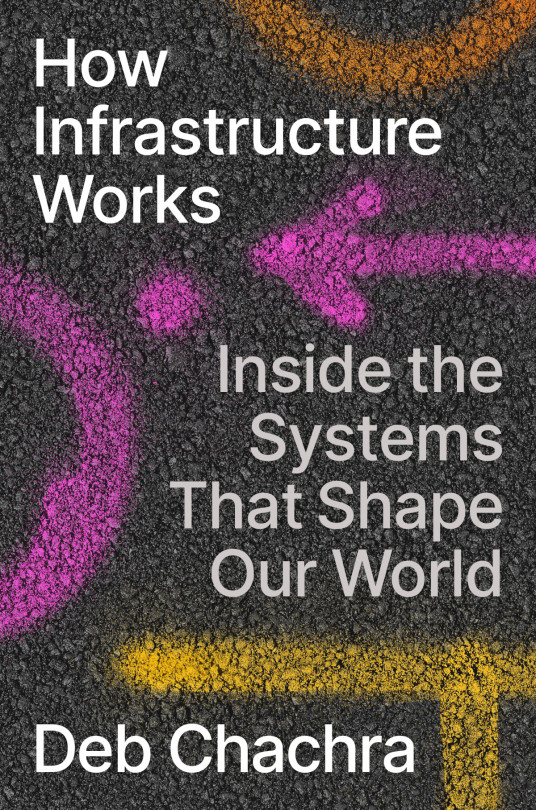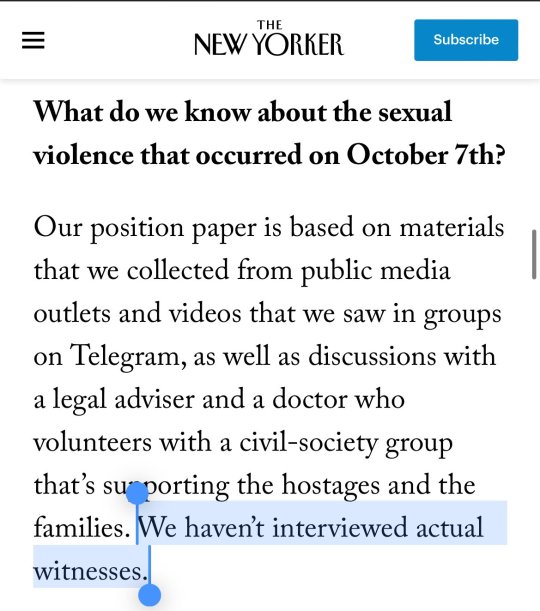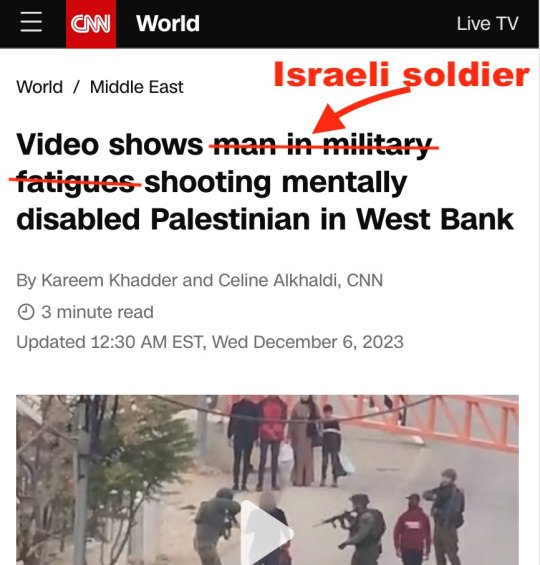#free material
Text
illustrations of various professions
0 notes
Text

Parallel Lines and Brothers.
[First] Prev <–-> Next
#poorly drawn mdzs#mdzs#wei wuxian#jiang cheng#lan wangji#lan xichen#jin zixuan#Does anyone else think about the tragedy of the parallel lines? Of characters who are parallel lines?#Of running the same course as someone. Of echoing each other in perfect synchronicity.#It's more than being a foil. It's about being on the same path and being so near to each other.#and yet parallel lines never intersect. They cannot meet each other despite their existence being tied to another.#I think the brothers tragedy is just as much of a tragedy of parallel lines as is pre-resurrection wangxian.#Jiang Cheng and Wei Wuxian spend so much time running side by side and yet - they cant close this gap between them.#Even if their relationship never recovers - they are forever tied together through their past. The good and bad and ugly.#All the things that are left unsaid between them. All the love and sacrifices they made for each other that are never shared. Parallel line#I firmly believe any post-canon material that would have them be indifferent towards each other is just...really doing them a disservice.#And dear god the Lan brothers. They certainly love each other! Its a far fonder fraternal relationship than jiangxian (/platonic)#They fool you by having you think they have a good read on each other. Lan Xichen certainly wingmans + advocates for lwj!#But lets not forget - Lan Xichen by the end is in the reverse situation and headspace as Lan Wangji by the end of this story.#Lan Wangji is more free and open than he has ever been. He's in love. He's married. He and wwx are intersecting lines.#& LXC who grew up with and lived the same path as LWJ - who even is said to resemble him visually - his parallel line - shuts himself away#Despite all the love LWJ has for his brother I don't think he ever manages to reach him.
1K notes
·
View notes
Text


Hi! 💚 You can call me Clara. If you're ready for the clothes to come off... (I am! 😍)
🌿 $3 VIP page (free vid in your DMs!)
🌹 free page
🍄 Fansly
👑 FEMDOM only
PS - I just started a FREE TELEGRAM CHANNEL too!
#luxury lingerie#satin and lace#girlnextdoor#wife material#sexy redhair#sexy hips#sexy redhead#long hair#thigh hi socks#legs open#petite body#natural body#bootiecandy#bootiful#little tease#free onlyfans#perfect peach#bubblebooty#nice buns#girls who lift
2K notes
·
View notes
Text

⏳
#amazing body#soft egirl#egirlvibes#sexy tease#natural body#alt aesthetic#egirl aesthetic#cosplay girls#egirl#alt model#short skirt#onlyf@nz#onlyfitgirls#bend me over#needy toy#all natural#wife material#free the tiddy#onlyfrenz#i sell content
486 notes
·
View notes
Text
sorry to keep bitching about frustrating rain world fandom trends, but I think if you read downpour as a pure "being alive is good, actually" metaphor with a weird dissonant twist at the end (saint's campaign), that ... reveals a shockingly surface-level reading of the story that ignores every interesting question the game poses in favor of trying to force a comfortable, one-note moral that only actually works if you ignore a significant amount of canon.
like, I'm sorry, but there's no way to in good faith pry a straight answer out of this story. I know fandom tumblr is a hotspot for disillusioned former christians, and stories about how religion isn't all it's chalked up to be are comforting for many, but this simply is not that kind of story. if that's your takeaway from it - that the world the game presents is worth sticking with, that ascension isn't the right choice - that makes sense, it's a valid personal opinion to come away with. however, to argue that the void sea endings are objectively the "bad" endings, or that saint's campaign makes no sense thematically, is to overlook a massively important reason why rain world works so well as a game in the first place: it's intended to be a choice.
saint's ascension ability is in YOUR hands. the game is asking you, the player, what you got out of this, what you think is best. it is asking you to reflect on the themes it's been trying to communicate to you for the last several dozen hours
(can you cope with a life that brings you more pain than joy? if there was another way to exist, would you choose to change? what would you give up to attempt another existence? everything? what if you're being fooled and you're chasing a terrible fate? what if powerful people are preying on your misery and it's all a scam? what is left of you when stripped of all things that cause pain? is it your true self? in a world without pain, what is even left? what if it's everything that means the most to you? what if you're going home? what if you could love without the fear of pain, loss, sickness, death? is the grand more important than the small? is it better to stick with familiar pain, or to chase something frightening that may ultimately make you happy? who can you trust to guide you? who will take advantage of you on the way there? what would get in your way? your own ego? your guilt? bitterness? love for the world you know, an ability to see beauty in the midst of tragedy? is this weakness or strength? etc etc etc don't even get me started on the commentary on religious institutions, classism, structural and familial abuse, and how this is all woven together)
like, I'm sorry, rain world is not a saturday morning cartoon trying to teach you life lessons, it's a piece of interactive fiction using game mechanics as a vehicle for some extremely interesting philosophical discussions, which it politely asks you to actively engage with as you go along. I'm sorry if that's uncomfortable to people who don't relate to those topics, but declaring bad writing on a piece of fiction for not presenting you with a clear-cut moral stance at the end that already aligns with your personal lived experience is just ... a godawful way to interact with stories.
(deliberately handwaving or ignoring major and obvious pieces of symbolism for the sake of declaring it a Good Story That Agrees With You, Actually frankly isn't much better. stop making me read analysis posts where half the story has to be a drug trip for your point to make sense)
#deerchatter#rain world#rain world analysis#yeah im putting it in the tag idc i love this game and if this can make just 1 person go back to the source material and try to#appreciate it in a new way then i'm happy. it has so much to say and i wish more people would listen#im not debating this btw <3 but feel free to ask questions ofc
333 notes
·
View notes
Text
fic where the strawhats meet a pair of people who call themselves rivals but theyre Normal about it. zoro and sanji are like pshhh are you even actually rivals if youre not spending every waking moment thinking about them and literally physically butting heads all the time and they have to be told no...... thats not normal thats. not a 'rivalry' thing
#nami: sounds like he lives rent free in your head. couldnt be me. you should start charging him#zosan#IS there fic like this. i cant do it myself because again. i dont actually... go here (never read/watched the source material)
358 notes
·
View notes
Text
story idea: the dragonborn dies somehow but the power itself must continue on as destiny bids, so the power attaches itself to some rando who them has a full power of the dragonborn. all while the world has stopped to mourn the greatest hero skyrim has ever seen.
#idk where id go with this#something about grief from a distance definitely#maybe something about expectations#i might tap up a concept for this using eryn('s death) and. idk. ill pick an npc OR make one up myself#full disclaimer im on meds as im writing this so while to me in the moment this sounds brilliant im sure its actually kinda stupid#ill decide in the morning#feel free to rb this with your own takes on the concept tho thats be neat reading material
170 notes
·
View notes
Text
Deb Chachra's "How Infrastructure Works": Mutual aid, the built environment, the climate, and a future of comfort and abundance

This Thursday (Oct 19), I'm in Charleston, WV to give the 41st annual McCreight Lecture in the Humanities. And on Friday (Oct 20), I'm at Charleston's Taylor Books from 12h-14h.

Engineering professor and materials scientist Deb Chachra's new book How Infrastructure Works is a hopeful, lyrical – even beautiful – hymn to the systems of mutual aid we embed in our material world, from sewers to roads to the power grid. It's a book that will make you see the world in a different way – forever:
https://www.penguinrandomhouse.com/books/612711/how-infrastructure-works-by-deb-chachra/
Chachra structures the book as a kind of travelogue, in which she visits power plants, sewers, water treatment plants and other "charismatic megaprojects," connecting these to science, history, and her own memoir. In so doing, she doesn't merely surface the normally invisible stuff that sustains us all, but also surfaces its normally invisible meaning.
Infrastructure isn't merely a way to deliver life's necessities – mobility, energy, sanitation, water, and so on – it's a shared way of delivering those necessities. It's not just that economies of scale and network effects don't merely make it more efficient and cheaper to provide these necessities to whole populations. It's also that the lack of these network and scale effects make it unimaginable that these necessities could be provided to all of us without being part of a collective, public project.
Think of the automobile versus public transit: if you want to live in a big, built up city, you need public transit. Once a city gets big enough, putting everyone who needs to go everywhere in a car becomes a Red Queen's Race. With that many cars on the road, you need more roads. More roads push everything farther apart. Once everything is farther apart, you need more cars.
Geometry hates cars. You can't bargain with geometry. You can't tunnel your way out of this. You can't solve it with VTOL sky-taxis. You can't fix it with self-driving cars whose car-to-car comms let them shave down their following distances. You need buses, subways and trams. You need transit. There's a reason that every plan to "disrupt" transportation ends up reinventing the bus:
https://stanforddaily.com/2018/04/09/when-silicon-valley-accidentally-reinvents-the-city-bus/
Even the cities we think of as motorists' paradises – such as LA – have vast, extensive transit systems. They suck – because they are designed for poor people – but without them, the city would go from traffic-blighted to traffic-destroyed.
The dream of declaring independence from society, of going "off-grid," of rejecting any system of mutual obligation and reliance isn't merely an infantile fantasy – it also doesn't scale, which is ironic, given how scale-obsessed its foremost proponents are in their other passions. Replicating sanitation, water, rubbish disposal, etc to create individual systems is wildly inefficient. Creating per-person communications systems makes no sense – by definition, communications involves at least two people.
So infrastructure, Chachra reminds us, is a form of mutual aid. It's a gift we give to ourselves, to each other, and to the people who come after us. Any rugged individualism is but a thin raft, floating on an ocean of mutual obligation, mutual aid, care and maintenance.
Infrastructure is vital and difficult. Its amortization schedule is so long that in most cases, it won't pay for itself until long after the politicians who shepherded it into being are out of office (or dead). Its duty cycle is so long that it can be easy to forget it even exists – especially since the only time most of us notice infrastructure is when it stops working.
This makes infrastructure precarious even at the best of times – hard to commit to, easy to neglect. But throw in the climate emergency and it all gets pretty gnarly. Whatever operating parameters we've designed into our infra, whatever maintenance regimes we've committed to for it, it's totally inadequate. We're living through a period where abnormal is normal, where hundred year storms come every six months, where the heat and cold and wet and dry are all off the charts.
It's not just that the climate emergency is straining our existing infrastructure – Chachra makes the obvious and important point that any answer to the climate emergency means building a lot of new infrastructure. We're going to need new systems for power, transportation, telecoms, water delivery, sanitation, health delivery, and emergency response. Lots of emergency response.
Chachra points out here that the history of big, transformative infra projects is…complicated. Yes, Bazalgette's London sewers were a breathtaking achievement (though they could have done a better job separating sewage from storm runoff), but the money to build them, and all the other megaprojects of Victorian England, came from looting India. Chachra's family is from India, though she was raised in my hometown of Toronto, and spent a lot of her childhood traveling to see family in Bhopal, and she has a keen appreciation of the way that those old timey Victorian engineers externalized their costs on brown people half a world away.
But if we can figure out how to deliver climate-ready infra, the possibilities are wild – and beautiful. Take energy: we've all heard that Americans use far more energy than most of their foreign cousins (Canadians and Norwegians are even more energy-hungry, thanks to their heating bills).
The idea of providing every person on Earth with the energy abundance of an average Canadian is a horrifying prospect – provided that your energy generation is coupled to your carbon emissions. But there are lots of renewable sources of energy. For every single person on Earth to enjoy the same energy diet as a Canadian, we would have to capture a whopping four tenths of a percent of the solar radiation that reaches the Earth. Four tenths of a percent!
Of course, making solar – and wind, tidal, and geothermal – work will require a lot of stuff. We'll need panels and windmills and turbines to catch the energy, batteries to store it, and wires to transmit it. The material bill for all of this is astounding, and if all that material is to come out of the ground, it'll mean despoiling the environments and destroying the lives of the people who live near those extraction sites. Those are, of course and inevitably, poor and/or brown people.
But all those materials? They're also infra problems. We've spent millennia treating energy as scarce, despite the fact that fresh supplies of it arrive on Earth with every sunrise and every moonrise. Moreover, we've spent that same period treating materials as infinite despite the fact that we've got precisely one Earth's worth of stuff, and fresh supplies arrive sporadically, unpredictably, and in tiny quantities that usually burn up before they reach the ground.
Chachra proposes that we could – we must – treat material as scarce, and that one way to do this is to recognize that energy is not. We can trade energy for material, opting for more energy intensive manufacturing processes that make materials easier to recover when the good reaches its end of life. We can also opt for energy intensive material recovery processes. If we put our focus on designing objects that decompose gracefully back into the material stream, we can build the energy infrastructure to make energy truly abundant and truly clean.
This is a bold engineering vision, one that fuses Chachra's material science background, her work as an engineering educator, her activism as an anti-colonialist and feminist. The way she lays it out is just…breathtaking. Here, read an essay of hers that prefigures this book:
https://tinyletter.com/metafoundry/letters/metafoundry-75-resilience-abundance-decentralization
How Infrastructure Works is a worthy addition to the popular engineering books that have grappled with the climate emergency. The granddaddy of these is the late David MacKay's open access, brilliant, essential, Sustainable Energy Without the Hot Air, a book that will forever change the way you think about energy:
https://memex.craphound.com/2009/04/08/sustainable-energy-without-the-hot-air-the-freakonomics-of-conservation-climate-and-energy/
The whole "Without the Hot Air" series is totally radical, brilliant, and beautiful. Start with the Sustainable Materials companion volume to understand why everything can be explained by studying, thinking about and changing the way we use concrete and aluminum:
https://memex.craphound.com/2011/11/17/sustainable-materials-indispensable-impartial-popular-engineering-book-on-the-future-of-our-built-and-made-world/
And then get much closer to home – your kitchen, to be precise – with the Food and Climate Change volume:
https://pluralistic.net/2021/01/06/methane-diet/#3kg-per-day
Reading Chachra's book, I kept thinking about Saul Griffith's amazing Electrify, a shovel-ready book about how we can effect the transition to a fully electrified America:
https://pluralistic.net/2021/12/09/practical-visionary/#popular-engineering
Chachra's How Infrastructure Works makes a great companion volume to Electrify, a kind of inspirational march to play accompaniment on Griffith's nuts-and-bolts journey. It's a lyrical, visionary book, charting a bold course through the climate emergency, to a world of care, maintenance, comfort and abundance.

If you'd like an essay-formatted version of this post to read or share, here's a link to it on pluralistic.net, my surveillance-free, ad-free, tracker-free blog:
https://pluralistic.net/2023/10/17/care-work/#charismatic-megaprojects


My next novel is The Lost Cause, a hopeful novel of the climate emergency. Amazon won't sell the audiobook, so I made my own and I'm pre-selling it on Kickstarter!
#pluralistic#books#reviews#deb chachra#debcha#engineering#infrastructure#free energy#material science#abundance#scarcity#mutual aid#maintenance#99 percent invisible#colonialism#gift guide
258 notes
·
View notes
Text
Are kids really being shown pragerU videos in public schools or is that something ppl are just panicking about because pragerU produces children’s content
#is there a way to know? do schools currently need to approve each individual teachers teaching aides? I always assumed videos we watched we#were vetted to some degree — from what I recall every school had standardized textbooks with specific tie in material and rarely did we#watch anything outside of that unless it was a free day or something
351 notes
·
View notes
Text
Seeing hot takes about Wei Wuxian's personality and confidence levels floating around again so thought I'd chime in with my own.
Wei Wuxian does not lack confidence. In fact he is often overly confident, as noted by himself post resurrection.
I think his biggest issues are
1. He views kindness towards himself as transactional. He must pay back any kindness as best he can. However, his own kindness is free of charge. Remember what others do for you, not what you do for others.
2. If someone has to get hurt, he'd rather it be him. This, i believe is the core (cough) of the hero complex Jiang Cheng scolds him for. Its okay if he gets hurt because its him. And he knows he can handle it. And if he can handle it, he has to.
3. He has a fundamental, deep set mistrust of authority figures. His own experiences teach him thst its better to ask forgiveness than permission because youll get punished either way. If you want something done itnis your responsibility. His support from those in power growing up was inconsistent which makes it hard to ask for help.
On paper, these line up with a lot of what the reader may experience as anxiety or lack of confidence/self-worth in their own life. Overcompensation, inability to ask for help, self-sacrifice and the like. The issue is that the motive isnt the same, even if the symptoms are similar. The reason people, including myself at times, depict wwx as being anxious or lacking self-worth i think is mostly projection turned fanon. Its cathartic and easier to relate to.
Wwx does not see himself as worth less of than others in his life. In fact thats part of what raises some other characters hackles. How dare this son of a servant act like he's one of us?!
I think a lot of his issue is really about debt (that he will repay if it kills him(spoiler: it does)), overconfidence in his own ability (though i think he is forcing that out of desperation at the end of his first life because he can't afford to be wrong (spoiler: he was wrong)), a lack in confidence in the skill or motives of others (not completely unjustified ngl), and a desire to keep those he love from harm as much as he can (success may vary).
#mdzs#mo dao zu shi#wei wuxian#wei ying#konnei has thoughts#i also havent gone back to read the source material in a hot minute#so feel free to argue the point if i got somrthing erong.#just my own interpretation of his character#please ignore grammar and typos. typing sloely on my phone#omg#typos in the damn tags#too late now#we die
873 notes
·
View notes
Text

#type: null#type null#this is one of the only pokémon i'll give TWO tags just in case folks search it with or without the colon#i also fail to understand what the Fuck this thing is#i never really saw it until you get a free one in the battle tower in gen 8. obviously. played gen 8 first y'all know that#and i was just like ?????? what is THAT#bunch of type disks???? ok????? arceus 2?????#that's what was in my head. then i played sumo and it's like Ok the edgy guy really likes this thing I Guess#dunno. guess it's favorite material bc of its story implications
121 notes
·
View notes
Text
cinema.
#i HAVE NO FUCKING WORDS#also literally double shantay material#FREE WILLY!#rpdr s15#s15e10#rpdr#anetra#marcia marcia marcia
948 notes
·
View notes
Text

should I post the rest of this video? 😈
#sexy content#sexy tease#18+ content#18+ only#free onlyfans#onlyfans tease#onlyf@nz#onlyfrenz#onlytease#legs#miniskirt#short skirt#upskurt#sexy redhair#sexy redhead#girlnextdoor#wife material#hot and sexy#so hot 🔥🔥🔥#so fucking sexy
824 notes
·
View notes
Text
I just saw a TikTok just now about “how to become a witch,” with a list of steps for beginners to follow. The first two things on the list were to buy books on witchcraft, and then to buy a bunch of materials. So here’s me reminding you that you don’t need to buy anything to become a witch. Sure, buying the tools is fun and all, but it isn’t a requirement to getting started. Witchcraft is a spiritual practice, not a consumerist hobby.
#I would also argue that it’s easier for beginners to grow in their practice when they aren’t bogged down by materials that they#don’t understand yet#I can make a guide later on some free stuff beginners can do to start learning#but spending a bunch of money on tools when you aren’t sure what sort of practice you’ll be drawn towards seems unnecessary#wish I would’ve known this when I was starting out and worried that I couldn’t be a witch because I was too broke#witchcraft#witchblr#baby witch#beginner witch#em rambles
297 notes
·
View notes
Text

can I taste?
#tongue piercing#sexy bitch#amazing beauty#needy toy#so hot#wife material#girlnextdoor#tig ol bitties#free the nips#free the bewbs#free the tiddy#fat tiddies#big tiddy goth girl#big tiddy goth gf#nipplicous#no bra no problem#blue hair#tongue out#pierced tongue#pixieskye
208 notes
·
View notes
Text
I need us all to be more urgently concerned with the current state of journalism.










#the thing about irresponsible journalism is that it endangers people which is why this not so new trend is so troubling#there are actual material consequences that come with the way you frame a story and so much of it is a step beyond tone deaf#and actually dangerous#palestine#free palestine#free gaza#free congo#free yemen#free armenia#free sudan#free lebanon#free puerto rico#free haiti#free hawaii#free syria#fuck wsj#fuck nytimes#fuck nypost#fuck cnn#please. not every opinion piece needs to be published istg#journalism#western media#social justice#anti colonialism
139 notes
·
View notes